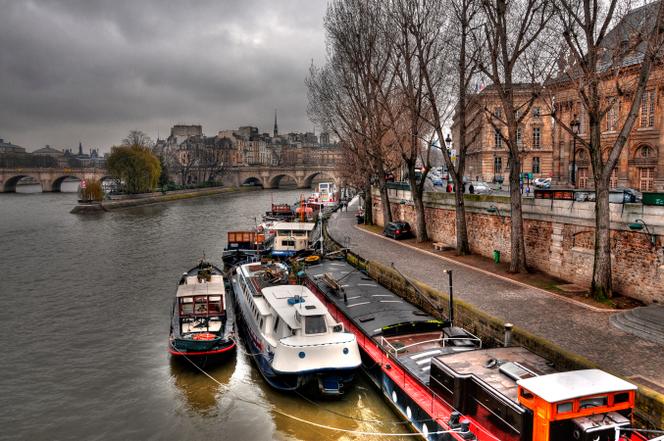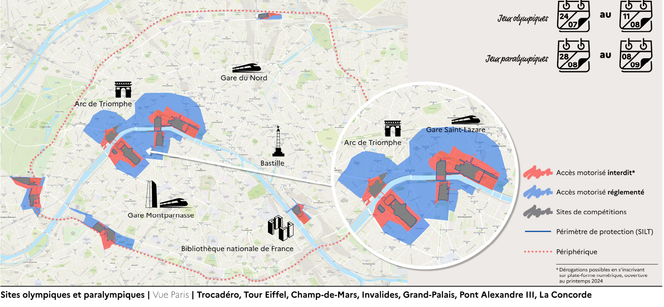


Between the opening ceremony – which will take place on the Seine in Paris on July 26 – and the various events that will take place in the river (freestyle swimming, triathlon, para-triathlon), barge owners will have front-row seats to the Paris Olympic Games, and then to the Paralympic Games this summer. It should be something to look forward to, but the owners of the barges moored along the quays, particularly those running restaurants, bars and nightclubs, are currently apprehensive about the future conditions under which they will be able to do business.
"There's quite a lot of uncertainty at the moment," summed up Arnaud Séité, co-owner and director of Le Marcounet, which operates several restaurant barges. "We're waiting for information, but I have the impression that we're all in the dark," he added.
On November 29, the Paris Police Prefecture presented the security and traffic perimeters that will be in place during the Games. Two security zones will encircle the Olympic venues as closely as possible, and two traffic zones will be established around them: These will only concern motorized vehicles (two- or four-wheelers), not bicycles or pedestrians.
In the blue zone, only vehicles belonging to people living or working in the area, or going to a shop or restaurant (delivery drivers) will be allowed in. In the red zone, vehicle access will be prohibited unless an exemption is granted, for which the prefecture mentioned the use of a QR Code.

The vast majority of barges (both residential and commercial) will be able to remain at their usual moorings, observing the security measures of the perimeter in which they are located. Only 20 houseboats, located in the area where athletes will disembark at the Trocadéro for the opening ceremony, will be moved to Boulogne-Billancourt for a few days.
"The main fundamentals have been laid down," stressed Olivier Jamey, president of the Communauté Portuaire de Paris (Paris Port Community), an association bringing together some 100 stakeholders from the economic and cultural sectors. "It seems quite logical to me that at this stage we haven't yet finalized everything. We'll still be in the dark for a long time on the details," he said in an attempt to be reassuring. Under the aegis of the Paris Police Prefecture, a consultation phase on these safety and traffic plans has been underway since early December and it will last until January. Involving local council members, companies, economic and institutional stakeholders, in Paris and in the various departments of the Ile-de-France region concerned, it should lead to the definitive definition of the plans.
You have 55% of this article left to read. The rest is for subscribers only.
